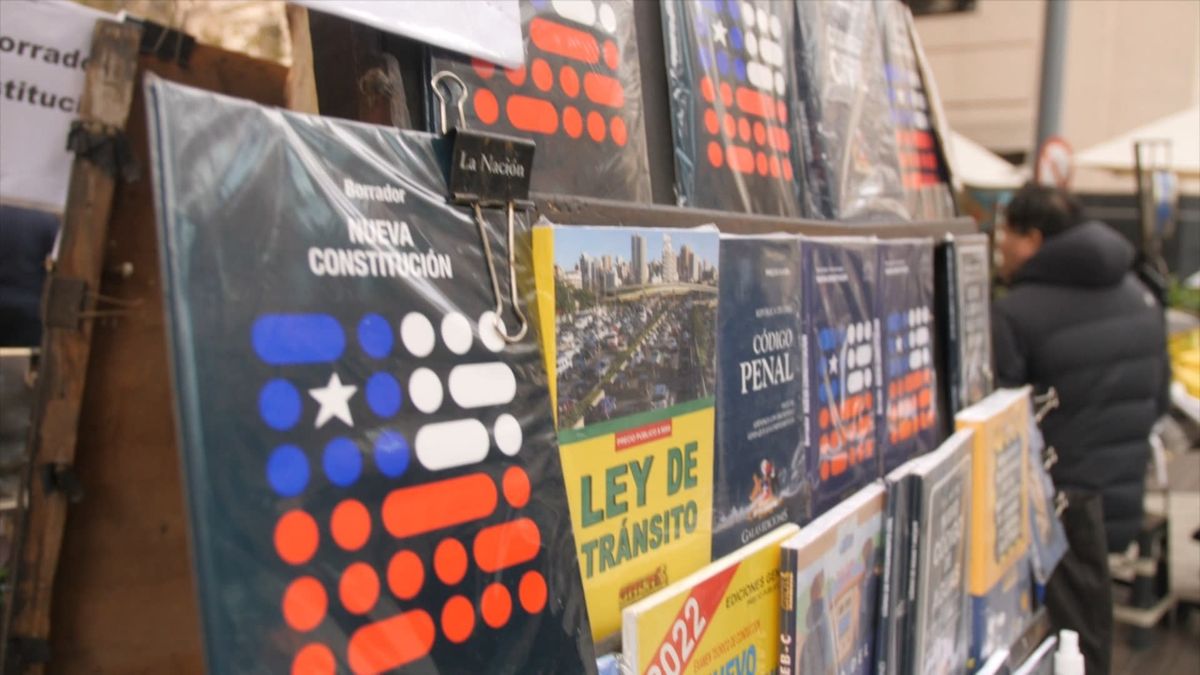Almost 80% of Chileans approved drafting a new constitution in 2020, a year after violent protests against the inequality rocked the world’s largest copper producer. But support has waned and polls show voters are likely to reject the new text.
Chile’s new constitution, written mostly by independent Y progressivesis readily available on the streets, online, or in podcast format.
The text focuses on social rights and the environment, and is a radical departure from the current market-oriented Magna Carta, which originated during the dictatorship of Augusto Pinochet.
falsehood or half truths
Paulina Valenzuela, statistician and managing partner of the pollster Datavozsaid that most of the misinformation over the past year focused on those who were drafting the document, but in early July they turned to the new text after it was completed.
“More than false, they are half truths,” he said. “You have to make an interpretation of the text, of how the rule or the article should be interpreted.”
He added that it is difficult to quantify what impact misinformation has on polls, but 65% of respondents reported encountering misinformation in the last week of July.
Fabian Padilla, who founded Fact Check CLa fact-checking site that started during the 2019 protests in Chile, said the sites cannot declare legal interpretations false, unlike, for example, patently false medical claims that circulated during the pandemic.
With Covid-19 “disinformation was very consistent in repeating the same patterns, some very absurd. But with the constitutional text, I say that there is much to debate,” he said.
Thus, legal experts must be consulted and more time is required to verify. “It hurts us a lot when it costs us a ‘check’ and it takes us days. We know that one more day at that level of viralization is a few million more visits,” she added.
Meanwhile, the professor of the computer science department of the Pontifical Catholic University of Chile Marcelo Mendoza has studied for years the spread of disinformation.
False claims about the new constitution in Chile travel three times faster on Twitter than news from reputable mediahe said, commenting that they have most of their impact within 24 hours, a period that social media companies struggle to overcome.
Misinformation about the plebiscite
The constitutional plebiscite itself and the state Election Service (Servel) have also been the subject of misinformation. The head of the organization Andres Taglesaid that this is the fifth electoral process in which they have been questioned, adding that the attacks have been characterized by increasing intensity and a cumulative effect on the public trust.
Goalparent company of Instagram and Facebook, said it has been actively working with the government of Gabriel Boric and fact checkers to help stop the spread of misinformation.
“We provided (Servel) a training session on Twitter’s rules while having open and constant communication with them,” a Twitter spokesman told Reuters.
The firm did not say how many accounts have been suspended or tweets removed, but cited its Transparency Report. The report says that the Government requested information 19 times on 33 accounts in the second half of 2021 and the company did not comply in any of those cases.
The spokesperson, citing privacy issues, said the company discloses nonpublic information about Twitter users only in response to “a subpoena, court order, other valid legal process, or in response to a valid emergency request.”
Meta said it has activated a rapid response team on Facebook and Instagram to identify violations, is working with fact-checkers including Fast Check CL, and limits the scope of posts deemed misleading.
When it comes to its WhatsApp encrypted messaging system, Meta says it focuses on reduce viralizationwhich has reduced the number of forwarded messages by 25% globally since 2020.
But Tagle said the measures still fall short of what is needed, adding that he would like social networks are regulated by law in Chileholding them responsible for the posts if they cannot identify the user.
“I don’t believe his intentions,” he said. “They sell advertising, so as more people see their content, welcome, and as they see fake stuff, welcome too.”
Source: Ambito
David William is a talented author who has made a name for himself in the world of writing. He is a professional author who writes on a wide range of topics, from general interest to opinion news. David is currently working as a writer at 24 hours worlds where he brings his unique perspective and in-depth research to his articles, making them both informative and engaging.




